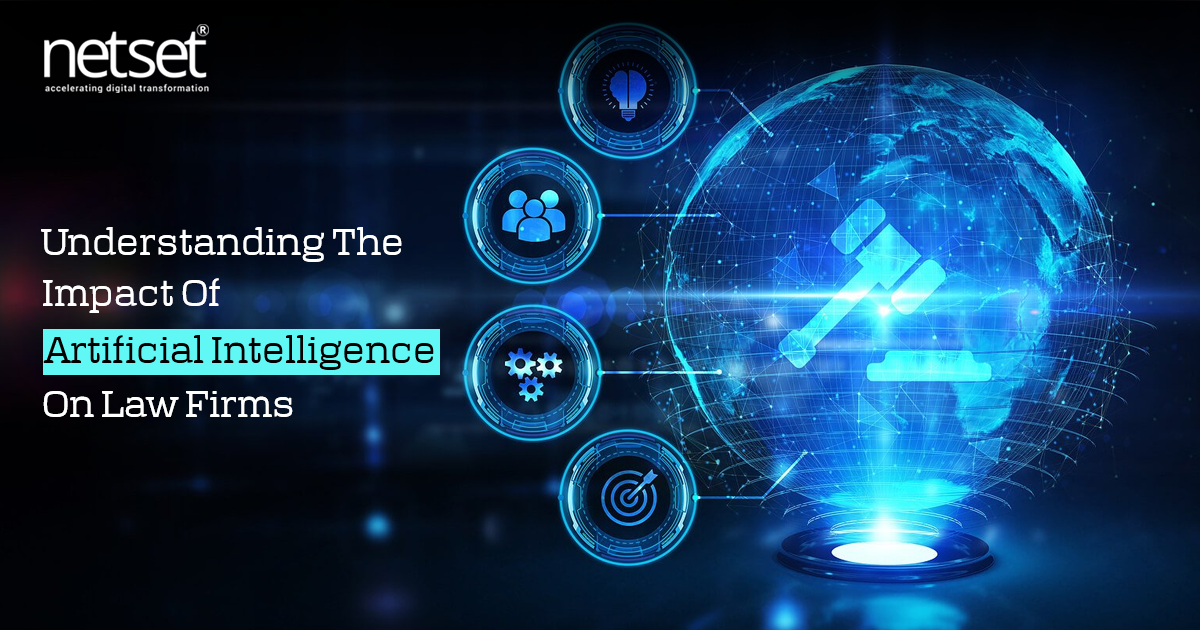Understanding The Impact Of Artificial Intelligence (AI) On Law Firms

Are you aware of the latest buzz in the market? AI technology is taking over the legal world like a storm, and lawyers are accepting the change, even though they have always been skeptical of the technology.
Today, the sheer volume of data is increasing at an exponential rate. While this data contains useful information for legal practice, its study takes time. Furthermore, when faced with the onerous process of sorting through huge amounts of data, humans can experience boredom and dissatisfaction. Rapid responses to customer, legal, and regulatory demands are also becoming increasingly important.
Fortunately, computers have progressed along with the data explosion. Artificial intelligence (AI) refers to computer systems that learn and develop over time in addition to performing predetermined tasks. These AI-based solutions can handle data-intensive jobs quickly and accurately, recognizing patterns, locating pertinent information, and detecting discrepancies faster and more correctly than people. This breakthrough relieves us of the seemingly insurmountable challenges of running an efficient legal firm.
So, let’s understand what AI technology is and its impact on legal institutions.
What is Artificial Intelligence?
The term “artificial intelligence” (AI) is commonly used to describe a machine that has been programmed to mimic human behavior. You can set a reminder on your phone to call your friend Ivan at 5:00 p.m. every Wednesday, for instance. This reminder will continue to be sent to your phone every Wednesday until you tell it to stop. This pre-programmed alert shows how artificial intelligence solutions can act like human beings by mimicking human intelligence.
You might have also come across the term “machine learning.” Although the terms are often used interchangeably, artificial intelligence and machine learning are actually quite distinct.
Will Artificial Intelligence Take Over Lawyers?
Without a doubt, custom AI solutions present attorneys with opportunities. Automation saves attorneys time they would have otherwise spent assisting clients and performing additional billable work.
However, AI also presents challenges that legal professionals must be aware of. It is essential that attorneys comprehend their ethical responsibilities when using AI technologies.
While artificial intelligence can save attorneys time, support automation, and add flair to legal writing, it is not here to displace humans. And the dread of technology that can save you and your business time may prevent you from assisting even more clients.
Impact Of Artificial Intelligence In The Legal Industry
Increased Efficiency: AI technologies have revolutionized law firms by streamlining processes, automating repetitive tasks, and reducing the time required for legal research, document review, and contract analysis.
Enhanced Accuracy: AI-powered systems exhibit remarkable accuracy in analyzing vast amounts of legal data, minimizing human errors, and improving the overall quality of legal work.
Cost Reduction: Implementing AI software solutions can lead to significant cost savings for law firms, as they can handle labor-intensive tasks, freeing up valuable time for lawyers to focus on more complex and strategic matters.
Improved Decision-Making: AI algorithms can provide valuable insights and predictions based on data analysis, helping lawyers make more informed decisions and develop stronger case strategies.
Access to Knowledge: AI platforms enable law firms to access a vast repository of legal information, including case law, statutes, and regulations, facilitating comprehensive and efficient legal research.
Client Service Enhancement: AI chatbots and virtual assistants can provide instant responses to client queries, ensuring prompt communication and improved client satisfaction.
Ethical and Regulatory Considerations: The adoption of AI in law firms necessitates addressing ethical and regulatory challenges, such as ensuring data privacy, transparency, and accountability in algorithmic decision-making.
Different Ways Lawyers Can Take Advantage of AI Technology in the Legal Industry
The legal industry presently employs AI in many facets of its operations. Artificial intelligence in law companies may not be visible, but it assists lawyers and paralegals in performing their duties more effectively. AI in law companies, in particular, assists legal practitioners in transforming their practice by putting clients first in an unprecedented way.
The following are just a handful of the ways lawyers can use AI in their firms:
E-Discovery (Electronic Discovery)
E-discovery, the scanning of electronic data to find non-privileged information relevant to a case or claim, is the most basic form of AI in law. E-discovery software lets lawyers search documents by date or location. Thus, lawyers receive almost instant responses—much faster than scanning hard copies. Lawyers have more time to find relevant information.
Law Research
AI-powered legal research software, like e-discovery software, lets lawyers quickly search large databases of regulations, statutes, practice areas, jurisdictions, case laws, and more. Lawyers can research precedents with legal research software. Lawyers save time and clients money by doing more thorough research faster. Casetext and Fastcase allow users to conduct and attach research to relevant case details.
Document Automation & Management
Law firms are moving away from paper documents, but electronic document storage has similar issues. Sorting and finding electronic records is difficult.
AI-driven document management software organizes contracts, case files, notes, emails, and more using tagging and profiling. Full-text search and this digital file storage and organization method make documents easier to find.
Document ID and check-in/check-out privileges maintain version control and security in document management solutions. Document management software can also share files with Microsoft Office.
Document automation saves law firms time by automatically filling form fields from case records into intelligent templates. Legal document automation streamlines the creation of letters, agreements, motions, pleadings, bills, and invoices.
Litigation analysis
Determining the viability of litigation or estimating the value of a lawsuit requires a thorough examination of precedential cases. Lawyer AI can rapidly analyze these precedents and assist attorneys in drafting more accurate and pertinent documents based on this information.
Conclusion
Now you must have understood the impact and benefits of AI for the legal industry. Are you also looking for a reliable artificial intelligence development company to get the best AI software development solutions? Netset Software is the best AI development company helping startups and business owners with AI app development and many other AI-based solutions. You can contact our team by sending us a message or sharing your queries or doubts.




